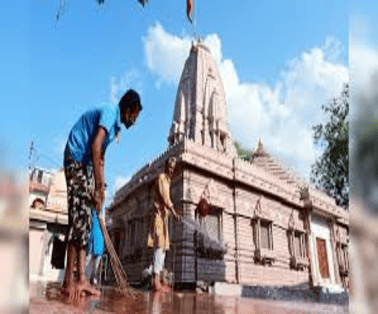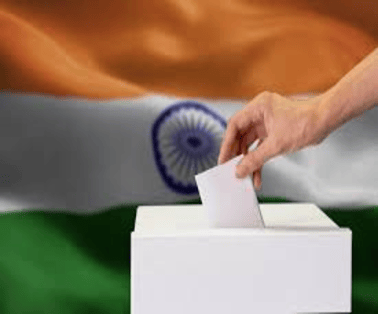Nearly five years after announcing that its work on the Punchhi Commission’s report on Centre-state relations is “complete”, the Union Ministry of Home Affairs (MHA) has decided to start the process of seeking the states’ comments on the issue afresh.
Key Points On Punchhi commission
- The Punchhi Commission was constituted by the then Manmohan Singh-led UPA government in April 2007 under the chairmanship of former Chief Justice of India (CJI) Madan Mohan Punchhi.
- In 2010, the Commission submitted its report to the Centre in seven volumes.
- Deliberation on the report was carried out by Inter-State Council (ISC’s) Standing Committee in 2017 and 2018.
- However, the report is yet to be implemented and the government has said that it will seek the state’s view on the report again.
- The objective of the commission was to examine and review the operation of the current agreements between the Union and States.
Volumes of Punchhi commission
The Punchhi commission provided 312 recommendations in a seven volume report comprising

Major Recommendations Of Punchhi Commission
Concurrent List subjects
- There should be a mechanism whereby the centre consults states before introducing a bill on concurrent list items. This consultation mechanism should be through inter-state council.
On President’s Pocket Veto
- Once a bill is passed in legislative assembly and then reserved by the governor for president’s consideration, President applies pocket veto in several cases.
- No communication is given to the state which is baffling for states. Thus, there should be mechanism so that president communicates his decision in reasonable time {6 months).
Treaty Making Power of Union
- There is a need of some kind of legislation to regulate the treaty making power of union executive with respect to treaties which have anything to do with the matters listed in state list.
- There should be greater involvement of states in such treaties.
Appointment of Chief Ministers
- Clear guidelines should be made with regard to the appointment of chief ministers so that the governor’s discretionary powers are limited in this aspect.
- A pre-poll alliance is to be considered as a single political party.
- The order of precedence while the State government is being formed should be the following:
- The group/alliance with the largest pre-poll alliance with the highest number.
- The single largest party with support from others.
- The post-poll alliance with a few parties joining the government.
- The post-poll alliance with a few parties joining the government and remaining including independents giving outside support.
Appointment of Governor
- The Punchhi commission recommended that the person who is slated to be a Governor should not have participated in active politics at even local level for at least a couple of years before his appointment.
- Chief minister should have a say in the appointment of governor. Appointment of governor should be entrusted to a committee comprising the Prime Minister, Home Minister, Speaker of the Lok Sabha and chief minister of the concerned state.
- The Vice- President can also be involved in the process.
- The term of appointment should be five years.
Removal of Governor
- For office of Governor, the doctrine of pleasure should end and should be deleted from the constitution.
- Governor should not be removed at whim of central government. Instead, a resolution by state legislature should be there to remove Governor.
- The report supported the right of the Governor to give sanction for the prosecution of ministers against the advice of the state government.
- There should be provisions for impeachment of the Governor by the state legislature
Governor as Chancellor of Universities
- The convention of making the Governors as chancellors of universities should be done away with.
Article 355 and 356
- It advised that Article 355 and Article 356 of the Constitution should be amended.
- Article 355 talks about the duty of the Centre to protect the state against any external aggression and Article 356 talks about the implementation of President’s rule in case of failure of the machinery of the state.
- The recommendation seeks to protect States’ interest by curbing the centre’s misuse of powers.
National Integration Council
- For internal security, commission recommended creation of an overriding structure on the lines of the US Homeland Security department, giving more teeth to the National Integration Council.
- This council should meet at least once a year. In case of any communal incident, a delegation of five members of the Council, who would be eminent persons, should visit the affected area within two days.
- However, it rejected constitutional status to NIC.
Communal Violence Bill
- The commission recommended that the Communal Violence Bill should be amended to allow deployment of Central forces without the state’s consent for a short period.
- The state consent should not become a hurdle in deployment of central forces in a communal conflagration.
- However, such deployment should only be for a week and post-facto consent should be taken from the state.
Finance Commission
- Even handling of the matters outlined in the Finance Commission’s terms of reference should be done so between the Center and the States.
- The States should be included in the formulation of the Finance Commissions’ final terms of the contract in an efficient manner.
- The Finance Commission and the Planning Commission ought to work much more closely together. This cooperation will be greatly enhanced by synchronising the Finance Commission’s and the five-year plan’s time frames.
- The Punchhi Commission advised that another period synchronisation attempt be conducted
To Download Monthly Current Affairs PDF Click here
Click here to get a free demo
Everything About CLAT 2025
Frequently Asked Questions
The Punchhi Commission was constituted in?
The Punchhi Commission was constituted in 2007
The Punchhi Commission was constituted under the chairmanship of?
The Punchhi Commission was constituted under the chairmanship of Madan Mohan Punchhi
Article 355 talks about the duty of the Centre to protect the state against any external aggression



